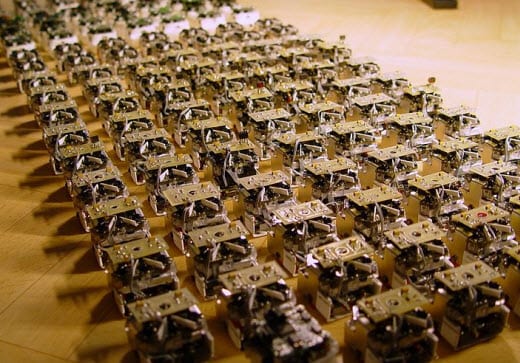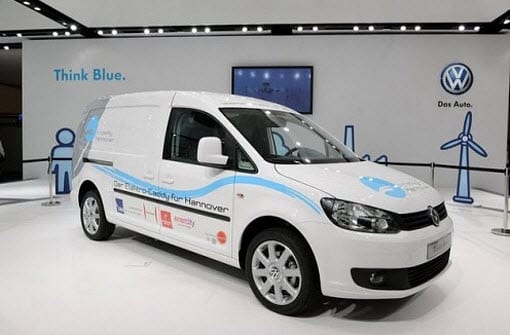
Navy researchers adopt microbial fuel cells to power new generation of tiny robots
January 8, 2012The U.S. Naval Research Laboratory has released details concerning a new microbial fuel cell project.
Microbial fuel cells are a variant of hydrogen fuel cells. Instead of relying on chemical conversions like conventional hydrogen fuel cells, microbial fuel cells work by mimicking bacterial interactions found in nature. The bacteria used in the fuel cells produce hydrogen, which is then used to generate electricity. Navy researchers plan to use these fuel cells to power a new generation of small robots called “microrovers.”
Researchers chose microbial fuel cells because of their greater flexibility when compared to traditional hydrogen-powered units. These fuel cells can be minute in size, with the smallest weighing a total of two pounds. The microrovers powered by these fuel cells will be used to conduct a series of scientific experiments on land and in the ocean. Many of these experiments will revolve around how much electricity is actually needed to power small machines that are meant to perform mammoth tasks.
The U.S. military has been a major supporter of alternative energy over the past year.
In 2011, the Department of Defense highlighted hydrogen fuel as a major energy priority for national defense. The agency has also urged the Department of Energy to adopt alternative energy at a quicker pace, claiming that the U.S. energy infrastructure must be updated in order to ensure its continued security in the future.



 HFN News is your leading source for fresh hydrogen and renewable energy updates. Amid the fast-paced growth of hydrogen companies, we provide top-notch news and insights about this exciting sector. Our coverage spans from hydrogen cars to global sustainable initiatives, and we highlight the latest in green jobs and developing hydrogen hubs. We invite you to share your local hydrogen news and explore today’s renewable energy job listings on our site. Thanks for choosing HFN News as your trusted guide to the hydrogen and renewable energy world!
HFN News is your leading source for fresh hydrogen and renewable energy updates. Amid the fast-paced growth of hydrogen companies, we provide top-notch news and insights about this exciting sector. Our coverage spans from hydrogen cars to global sustainable initiatives, and we highlight the latest in green jobs and developing hydrogen hubs. We invite you to share your local hydrogen news and explore today’s renewable energy job listings on our site. Thanks for choosing HFN News as your trusted guide to the hydrogen and renewable energy world!